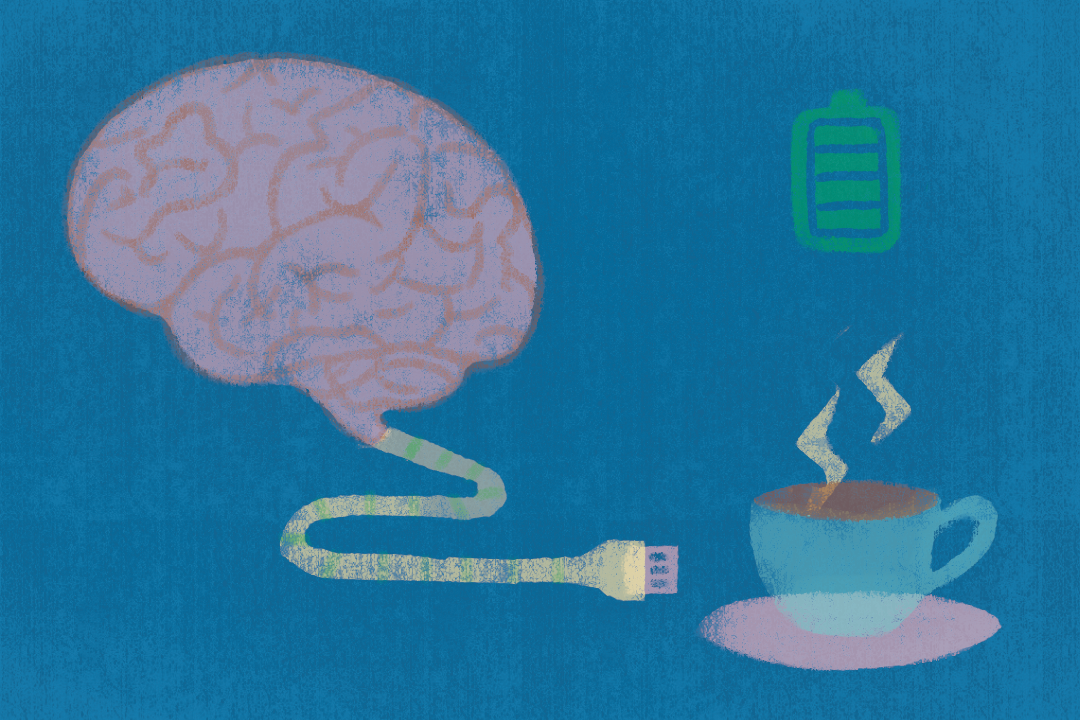Psychoactive drugs can affect your behaviour, emotions, cognizance, interpretations, and observations of your environment. What you might not expect is that the most commonly consumed psychoactive drug is caffeine.
When described as a neurologically altering substance, the cup of coffee you drank this morning seems a lot more intense than you might expect from an automatic component of your daily routine. Consuming psychoactive drugs might even be a habit that you depend on to get you through the day.
Caffeine and neuroscience
Adenosine is a neurotransmitter — a chemical that carries signals between nerve cells in the brain. It naturally accumulates in your brain throughout the day by binding to adenosine receptors. The product of this binding is exhaustion, the feeling that hits right before you promise yourself to get more sleep so that you can function better the next day — or the feeling that compels you to make that next cup of coffee or splurge at your local coffee shop. After you drink coffee, the psychoactive effects of caffeine kick in, blocking adenosine receptors so they can’t bind to adenosine and produce exhaustion.
Caffeine simultaneously increases the concentration of the neurotransmitter dopamine, enhancing our focus and attention.
Our brains must also maintain a balance between the concentration of glutamate, a neurotransmitter that helps amplify signals being relayed within the brain, and the inhibitory neurotransmitter gamma-aminobutyric acid (GABA).
A surplus in glutamate contributes to anxiety and restlessness — essentially having an energizing effect — while GABA counterbalances this by calming nerve transmissions. Caffeine inhibits GABA release and is said to increase the extracellular concentration of glutamate, exciting nerve transmissions and keeping us on edge.
Long-term effects on the brain
Surprisingly, if administered at the right dosage, caffeine can have positive effects for various mental health disorders. One study found that caffeine enhanced a rat’s cognition and attention abilities. This same improvement was seen among children with ADHD who consumed caffeine. Another study — conducted over 10 years — found a lower risk of depression for women who consumed more coffee throughout the day.
Neurodegenerative disorders like Parkinson’s and Alzheimer’s generally involve a disruption to the blood-brain barrier that results in inflammatory changes that ultimately lead to the breakdown of neurons. In animal models for neurodegenerative disorders, caffeine seems to protect the blood brain barrier.
Ultimately, caffeine should be consumed in moderation to have a positive effect. If the dosage is too much, the consequences can include sleep disturbances, psychosis, and anxiety. Additionally, the later in the day that you consume caffeine, the more likely it is that it will affect you when you are trying to get sleep.
Generally, our commitments take place during the day, and regardless of how late we get to sleep, we will have to be awake, alert, and functioning in the daytime. If caffeine keeps us up at night, we will probably turn to it again once our exhaustion builds up on the following day. This creates a cycle in which we become dependent on caffeine to stay awake, even though it is also the substance keeping us from getting the rest we need to feel naturally alert and cognizant.
Should we ditch coffee?
The thought of not drinking coffee might be scary for some people, but if you enjoy coffee, you may not have to worry about it. As with everything, moderation is key. As long as you aren’t consuming more than 400 milligrams of caffeine a day — the rough equivalent of four cups of coffee — you should be okay. However, if you are experiencing difficulty sleeping, headaches, muscle tremors, and other overstimulation symptoms, you might want to make some adjustments in your routine.
While the Mayo Clinic recommends brewing tea for a short amount of time to reduce its caffeine concentration, or simply switching to beverages without caffeine, they also dive into some routine adjustments that can be made to your lifestyle to reduce your intake and ultimate dependence on caffeine.
The list includes keeping track of your caffeine consumption, reducing your intake at a gradual rate — with emphasis on avoiding caffeine as a late afternoon or evening habit — and checking your medication ingredients for caffeine to make sure that you aren’t consuming more than you think. You can also try to wake up earlier, exercise, and spend time outside so that you feel more inclined to sleep at night and are capable of running on natural alertness throughout the day.
If you keep in mind what you are doing to the natural processes in your body the next time you turn to brew your third cup of coffee, it might be incentive enough for you to change your habits.


